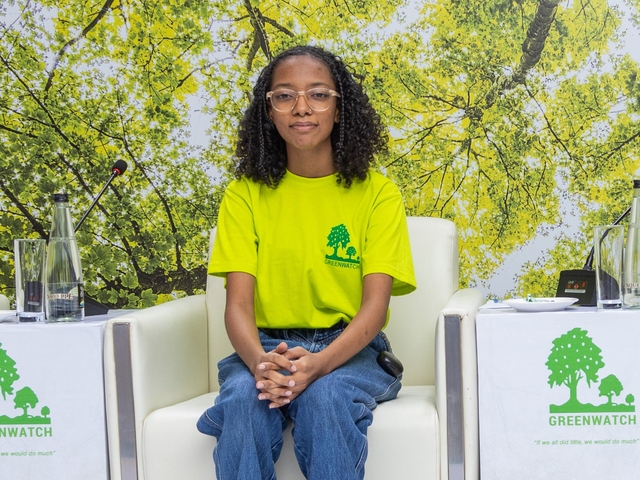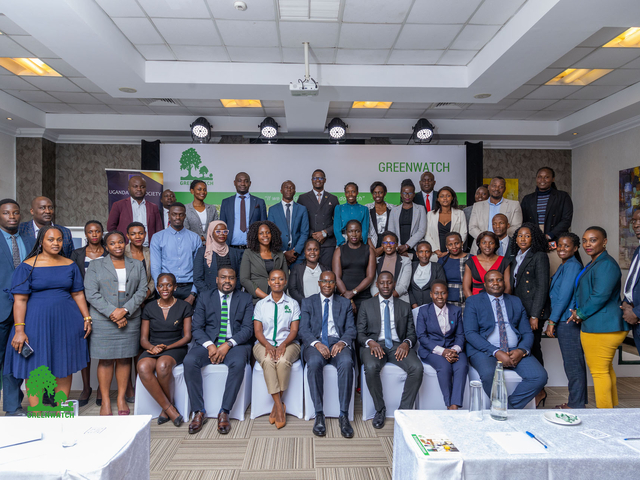On March 27th and 28th, 2025, the Uganda Law Society (ULS), in collaboration with Greenwatch and the Kenneth Kakuru Earth Reboot Initiative, held a community engagement event in Kasese District to launch an environmental restoration program along River Rwembya.
The event brought together young and senior lawyers, community members, civil society organizations, local government representatives, and students to explore practical solutions to environmental degradation and climate-related challenges in the region.
Unlike traditional classroom-based training, this interactive event served as a Continuing Legal Education (CLE) activity and created a space for young lawyers and community members to learn from each other. It helped bridge the gap between legal understanding and the environmental realities faced by people living near the river.
Speakers at the event expressed concern about farming practices that contribute to the erosion of riverbanks, which increases the risks of flooding and landslides. They emphasized the importance of community participation in restoration efforts to ensure long-term sustainability. One LC1 leader recommended making the planting of bamboo—known for its ability to prevent soil erosion—a requirement for all those cultivating land near the river.
Participants visited the most affected areas along River Rwembya, where communities regularly face flooding during the rainy season. Seeing the damage firsthand reinforced the urgency of the restoration initiative and strengthened the commitment among attendees to support the effort.
Tree planting was one of the key activities during the event. Community members, students, and lawyers joined hands to plant trees along the riverbanks. This symbolic and practical action was part of the broader effort to stabilize the soil, reduce erosion, and promote environmental restoration.

Special appreciation was extended to the students of Saint Teresa Girls Secondary School, who actively participated in the program. Their involvement highlighted the importance of engaging young people in environmental conservation and community development efforts.
Local government leaders, including the town clerk and representatives from Kisinga Town Council, welcomed the initiative and expressed their support. Representatives from the Rafiki Justice and Environmental Organization (RAJEEL) also noted that while the initiative began as a pilot, it is now expanding into a broader community sensitization effort.
Mr. James, a teacher from Saint Teresa Girls Secondary School, expressed gratitude for being involved in the program. He noted that while schools had previously engaged in small-scale environmental activities, the current initiative provided a clearer way to scale up and sustain these efforts.
Rose Ikiriza Kakuru Ngabo, founder of the Kenneth Kakuru Earth Reboot Initiative, shared that the idea for the restoration program was inspired by an email from Teacher James of Saint Teresa Girls Secondary School, who described the environmental challenges faced in Kasese. A field visit in January confirmed the urgency of the issue and led to the launch of the program. She emphasized that the initiative is focused not just on planting trees but on restoring ecosystems and improving community livelihoods.

Dorothy Atukunda, a technical staff member of the Kenneth Kakuru Tree Planting Initiative, introduced a mobile application that will track all tree planting activities. The app records the GPS coordinates of each tree and assigns a carbon credit to it. This system allows schools and communities to track their environmental contributions and potentially benefit financially by trading carbon credits with companies that need to offset emissions.
For example, if Saint Teresa Girls School plants 1,000 trees, each tree is logged and linked to one carbon credit. These credits can be accumulated and eventually sold, creating an added incentive for continuous engagement in environmental restoration.
Community elders reflected on traditional practices where trees were always planted before crops to protect the land. They expressed concern over the increasing reliance on fast-growing species like eucalyptus, which can harm the environment if not managed properly. The current initiative encourages the use of indigenous species and sustainable land management practices.
In conclusion, the event highlighted the importance of joint efforts among legal professionals, community members, educators, and civil society in promoting environmental restoration. The work along River Rwembya is only beginning, but with continued coordination, education, and practical tools like the tree-mapping app, the program aims to create long-term positive impact for both people and nature.









